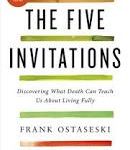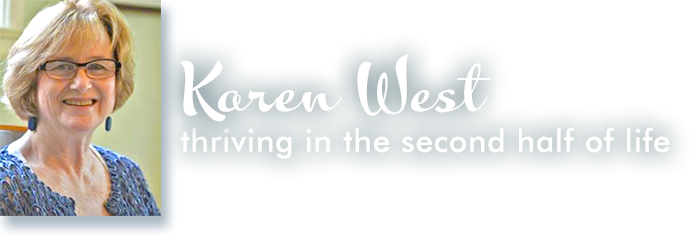In my last two blog entries, I wrote about Buddhism and how its teachings about impermanence can help us to become more comfortable with our mortality. Another Buddhist concept that will help us deal better with both our aging and our mortality is “non-attachment.” Because everything is impermanent, because everything constantly changes, it is unwise for us to get too attached to anything we see as “desirable” (which Buddhists call “grasping”), or to expend too much energy pushing away what we see as “undesirable” (which Buddhists call “aversion”). It is the “attachment” that makes us suffer. It is crucial for us to learn to “let go.”
But as Stephen Levine says in his book Who Dies? An Investigation of Conscious Living and Conscious Dying, “Nonattachment is not the elimination of desire. It is the spaciousness to allow any quality of mind, any thought or feeling, to arise without closing around it, without eliminating the pure witness of being. It is an active receptivity to life.” (51) Another way to say “active receptivity to life” is to say the acceptance of all of reality, which is another important way to decrease our suffering when we’re dying, as well as while we’re living.
 Or as Frank Ostaseski writes in his book The Five Invitations: Discovering What Death Can Teach Us About Living Fully, Welcome everything, push nothing away. (79) Ostaseki says we should strive to be “open.” If we are open, we “keep our minds and hearts available to new information, experiences, and opportunities for growth. It means having tolerance for the unknown. It means welcoming the bad times and the good times as equally valid experiences.” (80)
Or as Frank Ostaseski writes in his book The Five Invitations: Discovering What Death Can Teach Us About Living Fully, Welcome everything, push nothing away. (79) Ostaseki says we should strive to be “open.” If we are open, we “keep our minds and hearts available to new information, experiences, and opportunities for growth. It means having tolerance for the unknown. It means welcoming the bad times and the good times as equally valid experiences.” (80)
There is an oft-told Zen story that illustrates that often we don’t even always know what is a “good” time and what is a “bad” time in the moment. It is about a farmer who had worked his crops for many years. One day his horse ran away, and his neighbors said sympathetically, “Such bad luck.” “Maybe,” said the farmer.
The next morning the horse returned with three other wild horses. “How wonderful,” said the neighbors. ”Maybe,” said the old man.
The next day, his son tried to ride one of the wild horses, and he fell and broke his leg. “How unfortunate,” said the neighbors. “Maybe,” said the farmer.
The next day, the military came to draft the young man, but because of his broken leg, they left him behind. The neighbors congratulated the farmer on how well things had worked out. “Maybe,” said the farmer.
In Who Dies? Levine says that “Buddha said that fortune changes like the swish of a horse’s tail,” and therefore “Tomorrow could be the first day of thirty years of quadriplegia.” He asks, “What preparations have you made to open to an inner life so full that whatever happens can be used as a means of enriching your focus?” He says,” It’s an ongoing process of opening to life. The more you open to life, the less death becomes the enemy. When you start using death as a means of focusing on life, then everything becomes just as it is, just this moment, an extraordinary opportunity to be alive.” (30)
As Levine says, “being open to whatever happens excluding nothing” is “the perfect preparation for death.” (27)

